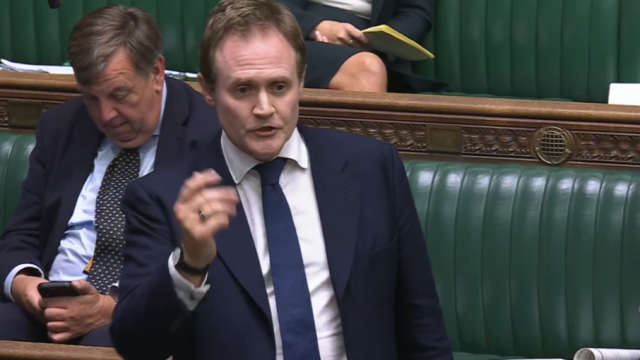A Deep Dive into Mismanagement, Waste, and Ideology-Driven Governance
For decades, governments across the world have promised prosperity, efficient spending, and responsible governance. Yet, time and again, they fail spectacularly, leaving taxpayers footing the bill for incompetence, ideological crusades, and an ever-expanding bureaucracy that serves itself more than the people it was meant to help. This essay will expose the glaring shortcomings of governments in managing public funds, prioritising economy over ideology, and ensuring that efficiency prevails over knee-jerk policymaking.
1. The Epidemic of Financial Mismanagement
Governments are notorious for spending beyond their means, often justifying budget overruns with lofty rhetoric about public services and national security. The result? Skyrocketing national debts, increased taxation, and economic stagnation. Here are a few key examples:
- Ballooning Deficits: Despite promises to balance budgets, many governments rack up debt at an alarming pace. This debt is rarely repaid but instead rolled over, leaving future generations burdened with the financial consequences of today’s reckless decisions.
- Cost Overruns in Public Projects: Infrastructure projects that were initially budgeted for millions suddenly inflate into multi-billion-dollar disasters. From highways to hospitals, the story is the same: delays, inefficiencies, and inflated costs due to bureaucratic mismanagement and corruption.
- Pension and Welfare Sinkholes: Many nations operate unsustainable welfare and pension systems that promise more than they can deliver. Rather than reform these systems to ensure their longevity, governments often ignore the problem, exacerbating the financial burden over time.
2. Ideology Before Pragmatism: A Government’s Greatest Sin
Instead of making decisions based on empirical data and what is best for the majority, many governments push ideological agendas that often lead to disastrous economic and social consequences.
- Greenwashing at the Expense of Economic Stability: While sustainability is crucial, governments frequently rush into costly environmental policies without fully considering their economic ramifications. Energy prices soar, industries collapse, and the working class bears the brunt of idealistic policymaking.
- Immigration Policies Without Thought for Integration: Many governments implement open-door policies without adequate plans for integration, job provision, or cultural assimilation, leading to strain on social services and a divided population.
- Social Engineering Experiments: Whether it’s enforced diversity quotas, radical education reforms, or state-backed ideological propaganda, governments impose social policies that often create more division than unity, benefiting political optics rather than real people.
3. The Rise of Quangos and Bureaucratic Bloat
Quasi-Autonomous Non-Governmental Organisations (quangos) have proliferated over the years, serving as cushy landing spots for political allies and consuming vast amounts of public funds without tangible results.
- Endless Committees, Minimal Action: Governments create review boards, advisory panels, and oversight committees that seldom produce meaningful change. These bodies exist largely to justify government inaction while creating the illusion of accountability.
- Public Sector Expansion for the Sake of It: Instead of streamlining operations, governments continue to expand bureaucracies, hiring administrators to manage other administrators. The result is bloated public spending with little improvement in efficiency.
- Redundant Agencies and Duplicated Efforts: Many government bodies have overlapping responsibilities, wasting billions annually. Instead of consolidating resources, governments perpetuate inefficiencies to justify ever-increasing budgets.
4. Wasteful Spending at an Unfathomable Scale
The list of government waste is endless. Whether through incompetence, corruption, or sheer negligence, public money is flushed away with shocking regularity.
- Vanity Projects: Governments waste billions on projects that serve no practical purpose beyond political bragging rights. From extravagant Olympic venues to underused transport systems, these projects often fail to provide any lasting benefit.
- Failed IT and Digital Projects: Governments attempt to modernize systems but, more often than not, end up with IT projects that are delayed, insecure, and grossly over budget.
- Foreign Aid with No Accountability: While supporting international development is commendable, vast amounts of money are funnelled into corrupt regimes, ineffective programs, and untraceable initiatives, benefiting few beyond the officials in charge.
5. Knee-Jerk Policy Making: Governing by Headlines
Rather than crafting well-thought-out policies based on expert advice and long-term consequences, governments too often react impulsively to public outcries and media pressure.
- Pandemic Pandemonium: COVID-19 exposed just how reactive and ill-prepared many governments are. Lockdowns were imposed without clear exit strategies, economic support was distributed haphazardly, and public trust was eroded by contradictory messaging.
- Crime and Policing Policies on a Whim: Instead of tackling crime with effective strategies, governments frequently swing between being tough on crime and soft-on-crime policies, depending on the political climate.
- Reactionary Taxation and Subsidy Decisions: Governments impose or retract taxes and subsidies not based on economic stability but rather to appease certain voting blocs, leading to market instability.
6. Lack of Accountability: The Perpetual Cycle of Political Evasion
One of the greatest frustrations citizens face is that governments rarely face consequences for their mismanagement.
- No One Takes Responsibility: Even when colossal failures occur, ministers and bureaucrats merely resign, only to reappear in different roles later. The lack of personal accountability fosters a culture of complacency.
- The Public Inquiry Farce: Investigations into government failures often drag on for years, producing reports that recommend action but ultimately result in no real consequences.
- Cronyism and the Revolving Door: Many politicians transition into lucrative private sector roles after their political careers, ensuring that their failed policies benefit them personally even as they harm the public.
Conclusion: The Need for Reform and True Accountability
If governments are to serve the people rather than themselves, fundamental changes are needed. This includes:
- Zero-Based Budgeting: Every government department should justify its budget from scratch rather than simply receiving incremental increases.
- Independent Oversight Bodies with Real Power: Watchdog agencies should have the power to enforce financial responsibility, fire incompetent officials, and recover misused funds.
- Stronger Recall Mechanisms: Elected officials should be held accountable with mechanisms allowing for their removal mid-term if they fail in their duties.
- Public Participation in Decision-Making: Rather than leaving everything to politicians, citizens should have a greater say in large government expenditures and policies via referendums and transparent public consultations.
Governments must be forced to act with responsibility, foresight, and efficiency. Without systemic change, they will continue to squander resources, promote ideology over practical governance, and avoid meaningful consequences. It’s time for citizens to demand better before the cycle of waste and failure repeats itself yet again.






